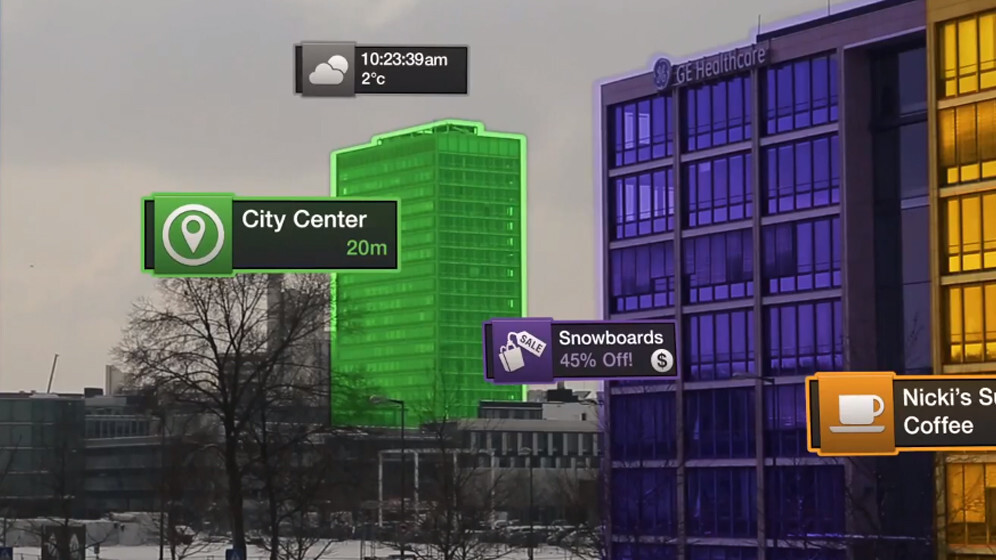
Augmented Reality (AR) specialist Metaio has announced a new partnership today with chip maker ST-Ericsson, which will see its AR reality hardware IP integrated into an upcoming line of smartphone processing units.
The collaboration marks the first time that a processor has been used specifically to accelerate and improve the performance of AR software on mobile devices.
Metaio’s AR hardware IP, called AREngine, is capable of presenting virtual and 3D content simultaneously with the landscape captured by a smartphone or tablet’s built-in camera.
With the next generation of ST-Ericsson processors, Metaio is pushing the concept of ‘always on’ AR in the next generation of devices. To do so, it’s trying to import all aspects of the AR experience, including faster processing speeds, object recognition and accuracy of the supplied information.
In fact, Metaio claims that its partnership with ST-Ericcson will deliver “60 times faster intialization” when compared with AR apps running on existing platforms – the highest to date seen in the industry.
“The AR Engine will do for augmented reality what the GPU did years ago for the gaming industry,” Peter Meier, Chief Technology Officer of Metaio said.
“This is a great leap in the AR space, and we strongly believe that the AR Engine working with ST-Ericsson platforms will help realize the Augmented City – the idea of a completely connected environment powered by augmented reality and made possible with next-gen, optimized mobile platforms.”
The promise and potentional of AR is huge, but it’s yet to be fully embraced by smartphone and tablet OEMs. Nokia’s City Lens app for Windows Phone 8 is probably the closest the industry has come, offering reviews of nearby businesses (à la Foursquare) using the built-in camera.
For movile devices, AR experiences are normally pretty walled off though. It’s included in a specific app, and switches off as soon as you’ve completed a specific task. By reducing power consumption, Metaio hopes that AR will be integrated at a much deeper level.
What they’re aiming for is probably similar to Google’s Project Glass; a wearable headset that can display information based on the user’s surroundings, as well as perform tasks via voice recognition. A new video of which was uploaded yesterday, featuring a whole host of features including video recording, Google Hangouts and Google Now integration.
If Metaio can replicate this experience with the smartphone, its partnership with ST-Ericsson could be very fruitful indeed.
Image Credit: Metaio
Get the TNW newsletter
Get the most important tech news in your inbox each week.





